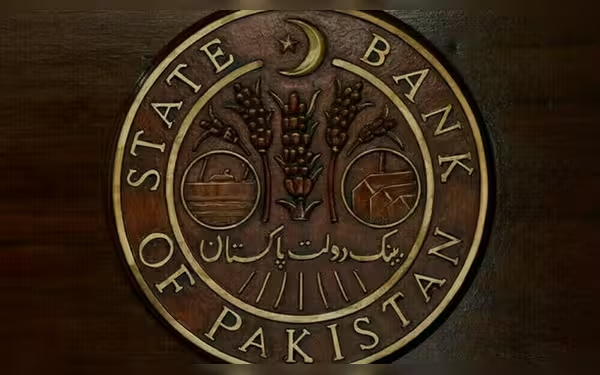Thursday, November 7, 2024 12:56 PM
Business Community Welcomes SBP's 200bps Policy Rate Cut
- SBP cuts policy rate to 17.5%, boosting business confidence.
- Salim Saifullah Khan calls for further interest rate reductions.
- Textile sector aims for $33 billion contribution to exports.
 Image Credits: brecorder
Image Credits: brecorderThe SBP's 200bps cut in policy rate to 17.5% is welcomed by the business community, with calls for further reductions to enhance competitiveness.
PESHAWAR: The recent decision by the State Bank of Pakistan (SBP) to cut the policy rate by 200 basis points, bringing it down to 17.5%, has been met with widespread approval from the business community. This significant reduction is seen as a crucial step towards revitalizing the country’s struggling industrial sector, particularly in Khyber Pakhtunkhwa.
Salim Saifullah Khan, a former senator and chairman of the Khyber Pakhtunkhwa Textile Mills Association (KPTMA), expressed his support for this move, emphasizing the need for further aggressive measures to enhance competitiveness and stimulate economic growth. He believes that while the reduction is a positive development, it is not enough. Khan advocates for a more substantial decrease in the interest rate, suggesting it should be lowered to 12% immediately, with a long-term goal of settling between 6% and 7%, aligning with regional economies.
Khan pointed out that despite the downward trend in interest rates, the cost of borrowing remains excessively high, particularly for industries like textiles in Khyber Pakhtunkhwa. These industries are facing challenges in competing both domestically and internationally due to high capital costs. He highlighted the importance of currency stability, noting that a stable Pakistani rupee has helped ease inflation by lowering the cost of imported goods. “Currency stability has a direct impact on inflation, and with the rupee stabilizing, we are seeing easing down of the inflation rate,” he stated.
However, Khan stressed that interest rates must be reduced to at least 12% to provide immediate relief to industries. He raised concerns about Pakistan's balance of payments, indicating that the outflow of US dollars continues to surpass inflows, leading to ongoing financial difficulties. He firmly believes that boosting exports is the only sustainable solution to the country’s economic challenges.
With Prime Minister setting an ambitious target of $60 billion in exports over the next three years, Khan noted that the textile sector is expected to contribute $33 billion. He insists that achieving this goal is only possible through export-friendly policies and significantly reducing the cost of doing business.
The recent cut in the policy rate is a welcome development for the business community, particularly for the textile sector in Khyber Pakhtunkhwa. However, as Salim Saifullah Khan pointed out, more aggressive measures are needed to ensure that industries can thrive in a competitive global market. The focus must remain on creating a conducive environment for businesses to flourish, which will ultimately benefit the economy as a whole.













